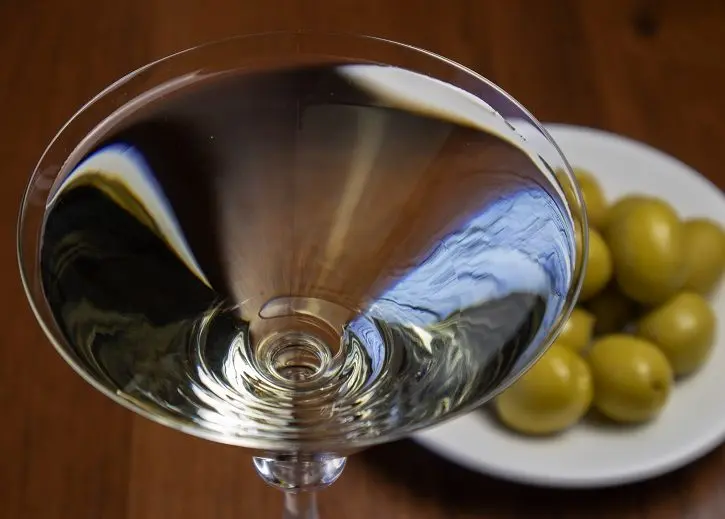Vermouth is enjoyed by millions of people around the world. Even if you think that you have never heard of such alcohol, it is not so, because the legendary martini also belongs to vermouth. Next, I will tell you how to make a martini analogue at home using wine, herbs, alcohol and sugar. The taste is close to the original.
Vermouth production technology
All vermouths are made according to the same principle. First, the herbs included in the recipe insist about a week on alcohol (usually grape). The resulting essence is filtered and mixed with pre-prepared wine (clarified, aged). Then sugar or syrup is added, sometimes even pure alcohol to increase the strength. Then the vermouth is heated to a high temperature, cooled, filtered and bottled. After exposure, it is ready for use.
With the same technology, each manufacturer produces vermouth with a unique taste. It’s all about the composition and proportions of herbs. Some recipes use more than 200 varieties. At home, the list will be more modest, but by experimenting with the composition (the main thing is not to forget to add wormwood) and quantity, you can make a unique vermouth.
I advise you to get a kitchen scale in advance in order to accurately measure the weight of herbs. Glasses, spoons, glasses in this case will not help.
Ingredients:
- wine (white or red) – 1 liter;
- sugar – 50-150 grams (optional);
- vodka (alcohol 40-45%) – 250 ml;
- dried wormwood (inflorescences or upper leaves) – 3 grams;
- yarrow (flowers or grass) – 4 grams;
- cinnamon (in sticks) – 3 grams;
- cardamom – 2 grams;
- saffron – 1 gram;
- nutmeg – 1 gram;
- chamomile – 2 grams;
- peppermint leaves – 2 grams;
- lemon zest – 2 grams;
- fennel – 1 gram.
Any herbs can be excluded from the composition of the herbal infusion, except for wormwood, which forms the characteristic taste of vermouth. It is advisable to add alpine wormwood, but it is difficult to find in our area, so ordinary bitter, which is sold in pharmacies, is suitable for replacement. Other herbs are sold in markets, supermarkets and pharmacies.
It is better to use inexpensive dry wine, you can homemade. Traditionally, vermouths are made from white wines, but for several years red wines have been popular in Europe, even the concept of “Catalan style” has appeared, describing vermouths made from red wine.
The amount of sugar depends on taste preferences and the type of wine (dry, semi-dry or sweet). In any case, I advise you to add at least 50 grams so that the finished drink is not too bitter.
For greater resemblance to the original, it is advisable to use not vodka, but grape spirit, cognac, chacha or grappa. Moonshine is the last resort.
Classic homemade vermouth (martini) recipe
1. Crush the cinnamon and cardamom with a wooden rolling pin. Add all herbs to the infusion jar. Pour in vodka or alcohol, mix.
2. Close the jar with a lid. Put for 10-14 days in a dark place at room temperature, shake once a day.
3. Filter the finished herbal infusion through 2-3 layers of gauze, squeeze the herbs well. Before mixing, keep the liquid part for 2-3 hours in a tightly closed container until a precipitate appears.
The prepared essence is enough for 2 liters of vermouth. Then we use only half. The recipe is made this way, because it is very difficult to measure and infuse a smaller amount of herbs.
4. Pour the wine into an enamel pan. Add 125 ml of herbal tincture and sugar. Mix.
If the drink is too bitter, you can add more sugar or alcohol.
5. Heat the mixture to 60-70°C, stirring occasionally. Then remove from stove and cool to room temperature. Filter if a precipitate appears.
Heating (stabilization) is an obligatory stage in the industrial technology for the production of vermouth, due to which herbal essence and sugar are better dissolved in wine.
6. Pour homemade vermouth into bottles for storage, seal tightly with corks. Keep the drink in the refrigerator or cellar for at least 15-20 days to stabilize the taste (the longer the better). Optimal – 2-3 months. Thanks to alcohol fixation, vermouth keeps much better than regular wine. Shelf life – up to 5 years. The strength depends on the chosen wine and the amount of added sugar, usually 14-17%.










